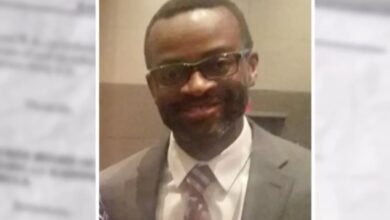
Hollyfield Foundation Celebrates 25 Years
Houston LGBTQ organization has given away more than $1.7 million to 100 different organizations.

One of the Houston LGBTQ community’s most important philanthropic organizations, the Hollyfield Foundation, is celebrating its 25th anniversary. During its first quarter-century, the foundation has given away more than $1.7 million to 100 different organizations.
Treasurer Mark Wood describes the foundation’s many beneficiaries. “We’ve helped retirees, youth, the homeless, and the rest of our neighbors cope better with life’s challenges. We have funded hotlines, counseling, medical testing for hard-to-reach populations, community music institutions, affordable senior housing, pet support for the hospital-bound, counseling for parents of LGBTQ+ kids, parades, film festivals, college tuition, handicapped access to treatment facilities, and lots more.”
A Legacy of Generosity
The Hollyfield Foundation came into existence in 1994 when gay Houston businessman Jay Hollyfield died from AIDS-related complications. A philanthropist by nature, Hollyfield was an active patron of the arts and a champion of LGBTQ causes. He also had a deep interest in health issues that face the community, especially HIV/AIDS.
Wood, a now-retired financial planner who has been on the Hollyfield board from the start, notes that Hollyfield began the foundation with a multimillion-dollar endowment. “We have given away more than we started with. Through careful investing, we’ve earned enough to keep on giving for decades.”
Hollyfield was a visionary, Wood says. “He always lived a life dedicated to giving back and building community infrastructure to provide care for those in need.”
Wood says the foundation quickly evolved from real-estate investments to securities. “We inherited a strange and wonderful portfolio, in addition to cash. There were nightclubs, a block-long strip of rent houses, a Mediterranean-style palace, and a silver mine! This was very labor-intensive to manage. Eventually it seemed smarter to dump the real estate and carefully invest in income-producing securities.” Board Chair Elizabeth McLane credits Wood with successfully guiding their investments over the past 25 years.
Grassroots Community Involvement
“We are here to help tackle the needs of others,” Wood notes. “We give grants annually to nonprofits to support charitable efforts in healthcare, the arts, and civil rights. Our focus is mostly helping Houston groups. Per our charter, we don’t fund political or religious programs.
“I think our sweet spot is funding small groups with low overhead and volunteers [who are motivated by] a charismatic leader who identifies a hole in the social fabric and organizes friends to help solve the problem. Often, our gift to them is a stamp of approval that gets them a whole lot more money from the giant endowments. And one organization only needed a refrigerator—it made a huge difference for them.”
Hollyfield grants are known for their diversity and timeliness. Among its recent beneficiaries are the LGBT History Research Collection at the University of Houston, Casa Anandrea for homeless transgender women, the Montrose Center’s senior-housing project in the Third Ward, and community photographer Dalton DeHart’s online photo archive.
Wood encourages community organizations to apply for grants. “We have tried to make the process as simple as we can. We even have a first step where they can submit a short letter stating what they want money for, and we can tell them whether that falls inside our mission. That way they can [avoid having to do] all the paperwork prep if we’re not a good fit.”
Immigration attorney John Nechman has been on the Hollyfield board for six years, and is the current secretary. He recalls that when he was approached, “It took two seconds for me to join. I knew of the foundation and was impressed by it.”
Wendy Harshberger, the foundation’s executive director for the past 20 years, has seen the growth of the organization. “The initial focus was the war against AIDS, which then evolved into human rights.”
In 2018, the foundation awarded grants totaling $250,000. Harshberger notes that the foundation is especially sensitive to the smaller organizations in the community. “Grant money is hard for them to get, and they depend on local foundations.”
A Diverse and Dedicated Board
Wood says that the Hollyfield board does two things—the investment and accounting component, and the awarding of grant money. He has high praise for Harshberger and the board: “Our executive director is a wonderful part-time employee who knows all these organizations and helps them apply. Our board members often stay up late at night reading background data to be sure grant recipients are honest, responsible, and can do what they say they’re going to do. I am proud that our board members have been educated in service through their leadership roles in local charities. All of them are volunteering their time, and work hard to help us do a good job distributing the money to do the most good.”
Harshberger considers it an honor to serve such a diverse board of directors. “Originally, the board was all men. Now it is very diverse—lesbian, transgender, black, white, Hispanic, Asian, Native American, young and old. We try to cover all the bases.”
The current board members are Elizabeth McLane, Mags Perez, John Nechman, Mark Wood, Frances Isbell, Frances Valdez, Janine Brunjes, Travis Torrence, Vanessa Edwards Foster, Donald Skipwith, Coy Tow, and Tammi Wallace.
An Appreciative Community
Josephine Tittsworth, executive director of the Texas Transgender Non-Discrimination Summit, praises the foundation for its longtime support. “The funding has made it possible for us to organize, promote, and produce a wonderful conference every year. The efforts funded by the Hollyfield Foundation made it possible for over 38 university systems in Texas to have a fully inclusive policy to protect sexual orientation, gender identity, and gender expression.”
Kennedy Loftin, chief development officer for the Montrose Center, reflects on the Hollyfield grant award to their senior-housing project: “The Hollyfield Foundation was the very first foundation to support the Law Harrington Senior Living Center, and they provided the first major gift in 2015. Their belief in this project allowed other foundations to commit and give gifts. They were with us from the beginning, when the project was just a dream.”
Tori Williams, founder of both the Pet Patrol and The oH Project, expresses her appreciation: “When we started the Pet Patrol in 1986, the goal of the program was to help people living with AIDS to keep their pets for as long as possible. At that time, [an AIDS diagnosis] often meant losing everything—jobs, homes, and friends who were also impacted by the disease. Their pets were frequently their only source of constant companionship, unconditional love, and acceptance. We were able to lessen the fear of losing their pets by making monthly deliveries of pet food, underwriting the cost of vet care, and providing foster care when the owner went into the hospital. It was very difficult to find funders who valued the bond between people and their pets, but the Hollyfield Foundation responded immediately when we submitted a grant application. They have continued to support the Pet Patrol for many years.
“Recently, some long-term HIV survivors, activists, and others started The oH Project,” Williams continues. “The purpose is to collect oral histories that document the history of Houston’s response to HIV/AIDS. There is a tremendous need to collect interviews from all members of the community, including mono-lingual individuals who do not speak English. But the cost of conducting an interview in Spanish, for example, and then transcribing it in Spanish and English, is almost twice the cost of the other transcripts. Once again, the Hollyfield Foundation stepped up and agreed to cover the expense.”
Jay Hollyfield’s Life
Jay Hollyfield was a native Houstonian who attended Lamar High School, and later the University of Texas. He spent his early years dabbling in acting, first in New York and then in Europe. Like his father, he became an entrepreneur and successful businessman.
Hollyfield owned and operated many businesses that catered to Houston’s gay community. His properties included both historical landmarks and popular gay destinations in Montrose and Midtown, including The Locker, Different Drum, Loading Dock, and Dirty Sally’s. His pride and joy was the Hollyfield Building at 2700 Albany, built in 1913 as the Depelchin Children’s Home orphanage. The building eventually housed a variety of gay clubs in the 1970s and 1980s—Farmhouse, Gay Country, Houston Country, Sassee’s, Officers Club, Upper Deck, Risky Business, Albany Club, Wranglers, Beaches, and Insanity.
The Westheimer Art Festival was a special love for Hollyfield, and he was involved from its inception in 1972 until his death in 1994. Today, the festival is known as the Bayou City Art Festival—bigger and more successful than ever, raising hundreds of thousands of dollars each year for the art community and other charity partners.
Hollyfield was also instrumental in founding the Kaposi’s Sarcoma Committee, which became AIDS Foundation Houston, and he was an early supporter of the Montrose Clinic, now known as Legacy Community Health.
A colorful 2011 OutSmart profile of Jay Hollyfield by Nancy Ford is archived at outsmartmagazine.com/2011/09/the-legacy-continues/.
This article appears in the December edition of OutSmart magazine.











Comments